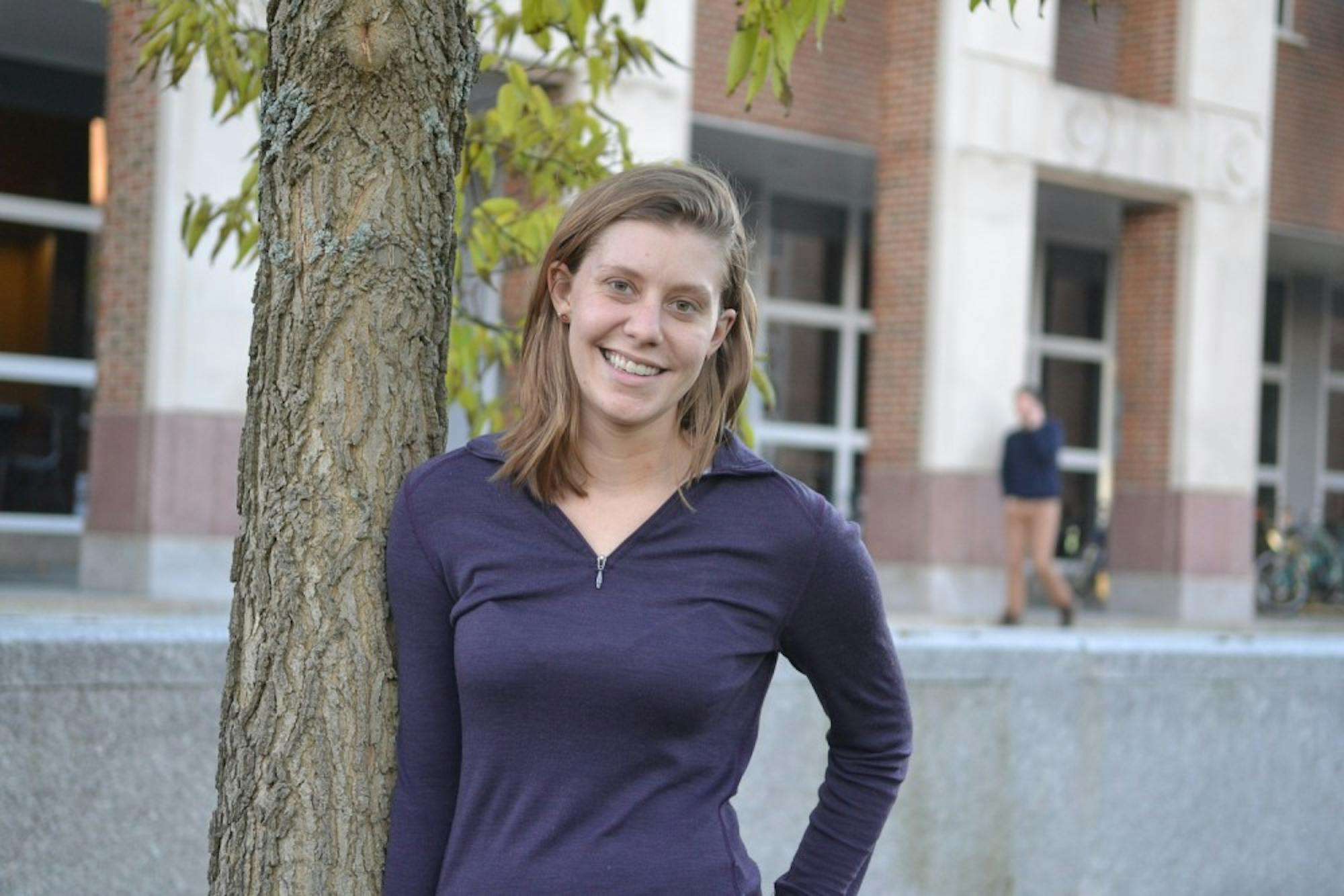For ’16s, this is the first time we’re all — more or less — on campus together since the 2012-2013 school year. My first night back this fall, fresh off the Dartmouth Coach and still lugging my duffels, I had dinner at Molly’s to celebrate a friend’s birthday. As a closet socially anxious person, this was the perfect way to start the term. I maybe not-so-secretly have the constant niggling worry that nobody likes me, and I should just go eat some worms. So having plans for a social gathering the minute I got here was comforting. After three years, I feel like I have networks — plural — of people to turn to and be with, and that’s a beautiful thing. Surprisingly, though, it’s not togetherness that’s fueled my happiness — it’s separation. It’s the D-Plan.
I met a ’16 I’d never seen before at that Molly’s dinner and have since spent time getting to know her one-on-one. She’s interesting and fun, and I’m glad that almost all of the senior class is on campus so that we managed to overlap. That being said, my friends are all here and so are hers. Our friend groups contain many of the same people — hence our meeting. We aren’t traveling outside of our comfort zones in the slightest by befriending one another. It’s not a bad thing, but it’s led me to evaluate the terms when that’s not been the case. Because of the crazy, whirlwind, isolating D-Plan, I’ve had terms where the friendships I spent more than a year cultivating were suddenly long-distance. I’ve had terms where only a few of my closest friends remain on campus, and virtually all of my larger-circle friends are gone. The start of those terms felt like free-falls, like freshman fall all over again. Who would I spend time with? Classes would start, and I’d feel like all I had to do every day was work, eat and sleep.
Then, suddenly and usually at random, what I call “term friends” would come out of the woodwork. That girl I sat next to in class, met that day on the Green or shared a mutual friend with was a stranger one day and my closest confidant the next. Because of those term friends, I tried new things — I rock climbed (poorly, and indoors) and discussed wild drugs (that I never took) and got funky piercings (that my dad didn’t end up killing me for). What distinguished these friends from my usual companions were their personality types — that is, we didn’t always quite match up the way that I would with a close friend. We didn’t always run in the same crowds or at the same places in a way that makes me wonder — if my best friends had been on campus any of those terms, would I have bothered to put the effort in with those term friends? If I hadn’t been forced out of my comfort zone, would I have ventured willingly?
The D-Plan has gotten a bad rap for many reasons, chief among them that it tears people apart, putting best friends and significant others across the globe from one another to create a lonely 10 weeks. But I’m contemplating the flip side: that loneliness can not only foster new friendships, but also create an enduring sense of strength and independence. With each new term without all my friends came a small but noticeable change — instead of feeling anxious about my social life, I felt excited. The Dartmouth Coach would circle the Green and, over several terms, the pit in my stomach shrank and my thoughts shifted from who wasn’t there to who was. I was inevitably going to meet new people — people different from me in myriad ways, and some of them would become vehicles of exploration. Aside from being just plain fun to hang around with, they allowed me to explore new personality types, new ways of thinking and (excuse my cheesiness) my own sense of self. I could survive and even enjoy terms where the people I depended on were off-campus, leading me to one clichéd and saccharine conclusion — I could depend on myself.
As a school, we talk a lot about finding a home on campus, being grounded and spreading our roots. This is all well and good, and there is undeniable value in having places, activities and people to rely on and revel in. But as I told the ’16 friend from my Molly’s dinner, I found a home in myself. Okay, everyone commence throwing up in your mouths a little bit and come back when you don’t want to punch me. And exercise your self-control because I promise, despite sounding like the sequel song to “Kumbaya,” I am not an overly warm-and-fuzzy person. I am, on the other hand, a big proponent of self-empowerment — in this case especially, since figuring out that I can be happy on my own will stay with me long after college.
One of my best friends, who also happens to have started as a term friend, likes to discourage the idea that relationships with friends or significant others create happiness. She’ll get really close to me and whisper-yell, “Make your own happiness!” The clear bonding opportunities whisper-yelling in close proximity presents notwithstanding, I appreciate the message. Starting over, striking out on my (or your!) own, can be a gift. I don’t always stay close with my term friends, and I always miss and love my best friends, but the sentiment remains powerful for me. I am my own home base, no matter where I am or who I’m with, and I’m not sure I would have discovered that without the D-Plan.




